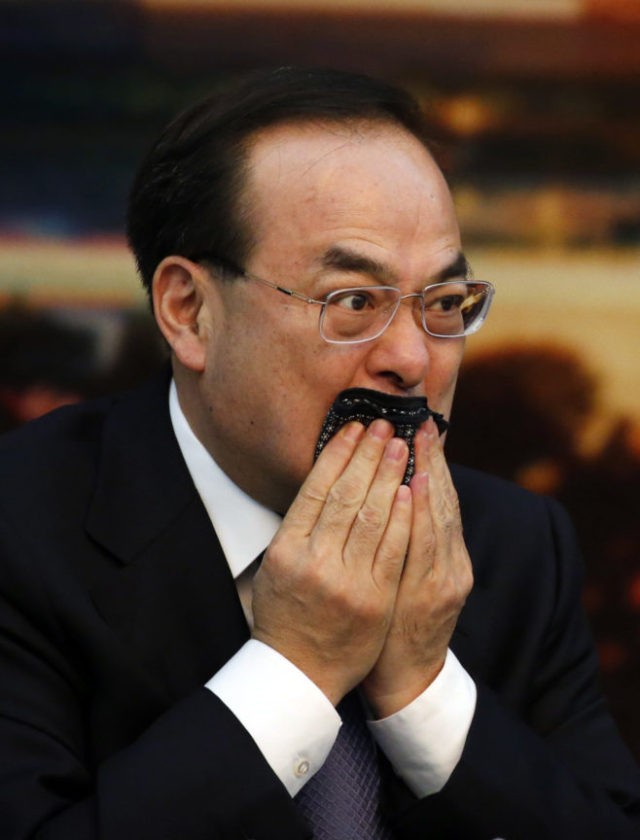Sun Zhengcai, formerly one of China’s rising political stars and a possible successor to President Xi Jinping, completed his fall from grace on Thursday by pleading guilty to taking $27 million in bribes between 2002 and 2017.
At 54 years of age, Sun was a relatively fresh face among China’s political elite, formerly the youngest member of the Politburo and party boss of the populous city of Chongqing. He lost that position in July when he was accused of abusing his authority to seek payoffs in property and cash, plus political and even sexual favors, for just about the entirety of his incandescent political career—from provincial party executive to minister of agriculture.
The South China Morning Post notes there was little drama surrounding Sun’s trial, as court hearings are a mere formality once the Communist Party passes judgment. Sun had already been censured by the Party’s internal ethics committee and firmly denounced as a crook by state-run media; after he pled guilty, the media declared his downfall was another triumph of President Xi’s tireless anti-corruption crusade.
The new golden boy who replaced Sun in Chongqing, Chen Miner, lashed out at the fallen politician for complying with Xi’s agenda in appearance but “opposing in his heart.” Local media in Chongqing accused him of “launching projects nominally aimed at improving people’s livelihoods, but delivering no results; being apathetic to people’s suffering and safety by not showing up at disaster scenes; and distorting central government policies in their implementation to fit his own ideas.”
The same accusations were lobbed at Sun when he was first placed under investigation and expelled from the Politburo. State-run media declared his “faith and belief” in communism had been shaken and he “seriously violated party discipline and rules.” The Diplomat noted at the time that state media had a habit of stealth-editing its denunciations of Sun to fine-tune their severity, presumably because the Party had not yet decided how steep his fall from grace should be.
As it turns out, the fall was steep indeed, ending in a shallow political grave surrounded by scorched earth. Sun’s doom has been interpreted as a signal from Xi to his other proteges that absolute loyalty is required, and even a rising star who might have been just weeks away from elevation to the mighty Standing Committee of the Politburo can still be utterly destroyed.
In addition to finding his anti-corruption crusade useful for dispatching rivals, Xi appears genuinely angered by corruption, especially when it’s sweeping, embarrassingly clumsy, and liable to interfere with his agenda. Casting down a young politician on the fast track like Sun, whose name was on the short list of possible presidential successors, gives Xi an opportunity to convince the public he is deadly serious about clean government – the very message his media is working overtime to send after Sun’s guilty plea.
“Sun Zhengcai was a sacrificial object to send a message across the party. Xi Jinping has signaled that he doesn’t feel bound by the order of promotion set by the previous generation of leaders,” pundit Wu Qiang told the New York Times when Sun was abruptly yanked off the political stage in July.
Boston University professor Joseph Fewsmith suggested Sun was “just the wrong guy in the wrong place” as a new rising star blasted off into office.
“Chen Miner seems like one of those people Xi is counting on to get things done,” Fewsmith remarked. That proved to be a tough break for Sun, who rose to prominence under Xi’s predecessor Hu Jintao, and found himself diagnosed with a terminal lack of faith in Xi Jinping’s agenda.

COMMENTS
Please let us know if you're having issues with commenting.